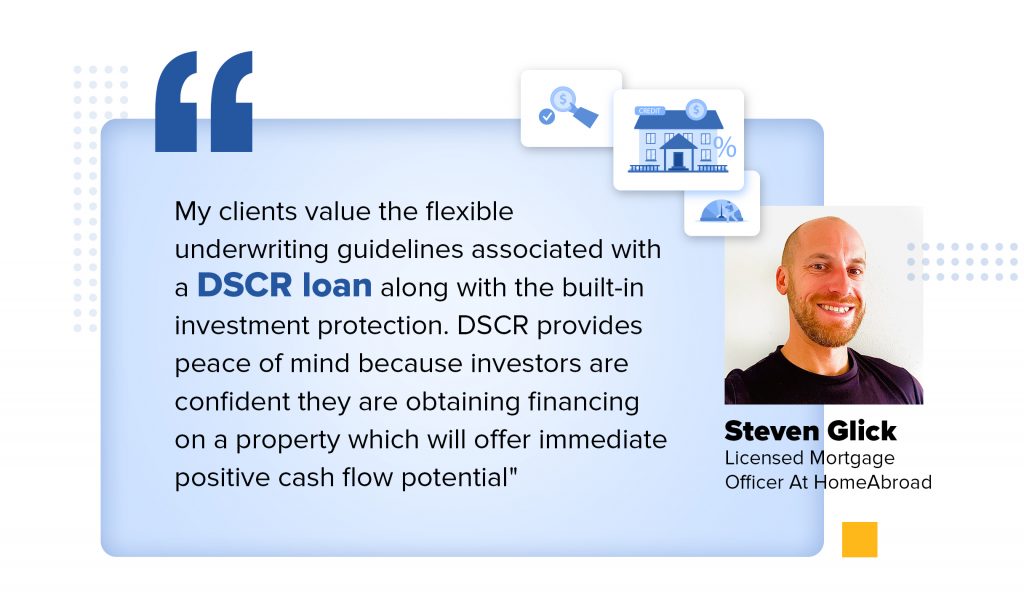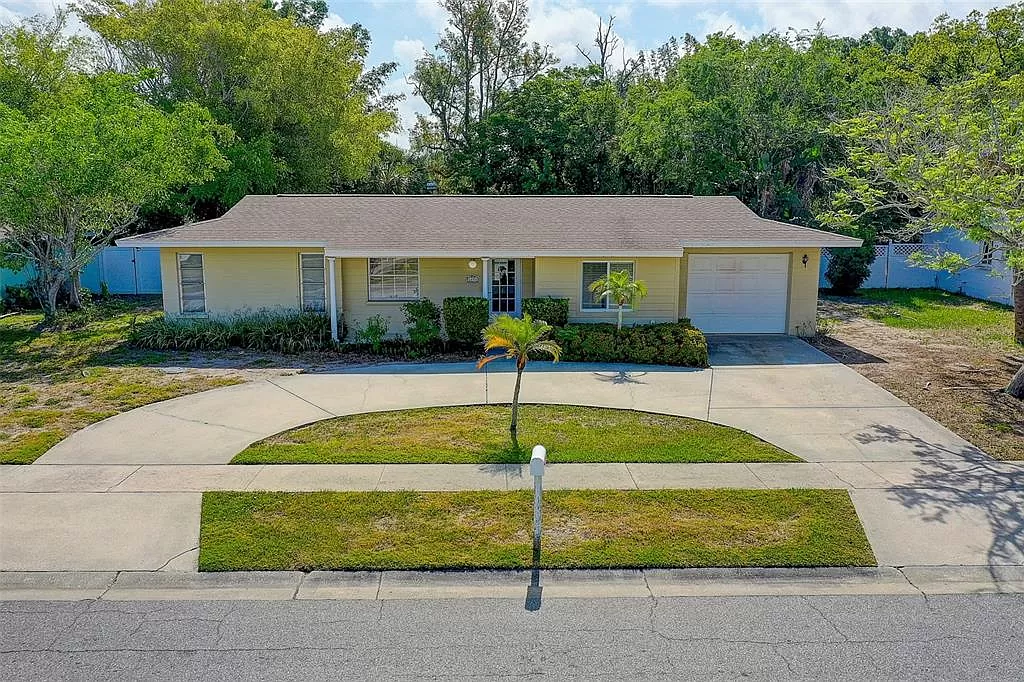Key Takeaways:
➡️ F1 visa holders on Optional Practical Training (OPT) can apply for a home loan through HomeAbroad Loans if they have income, a good credit score, or a co-signer.
➡️ Parent-assisted mortgages allow F1 students to live in a property purchased by their parents using their foreign income and credit history.
➡️ Even without US credit history, F1 students and their families can invest in US real estate with flexible financing options through HomeAbroad Loans.
Table of Contents
For most F1 visa holders, the idea of getting a mortgage may seem impossible due to their visa status, lack of credit history, and limited income.
However, there are options available, especially if you are earning income in the US during the Optional Practical Training (OPT) period or through parent-assisted mortgages.
Take the example of Carlos, an F1 visa student whose parents wanted to invest in property during his time in the US.
While Carlos couldn’t apply for a mortgage himself, his parents, with the help of HomeAbroad Loans, were able to secure a loan to purchase a home where Carlos could live during his studies.
In this article, we’ll explore how F1 visa students, with or without income, can leverage HomeAbroad Loans to achieve homeownership in the US.
Can F1 Visa Students Get a Mortgage in the US?
For most F1 visa students, buying a home directly through a mortgage is not feasible. As international students, F1 holders typically do not have income or a sufficient credit history in the US.
Additionally, F1 students are on a study visa which limits their ability to work and earn an income.
However, F1 college students who are in their Optional Practical Training (OPT) period and have obtained an Employment Authorization Document (EAD) with an active US payroll may be eligible to apply for a mortgage through HomeAbroad Loans.
With income from full-time work and a good credit score, an F1 visa holder may also qualify for certain types of home loans, like conventional or FHA(Federal Housing Administration) loans.
F1 Visa Mortgage Options with Good US Credit History
F1 visa holders on OPT who have EAD, have a few options when it comes to securing a mortgage. These include:
- FHA Loans: These are government-backed loans that allow for smaller down payments, making them more accessible for first-time homebuyers and those with limited credit history (580+).
- Conventional Loans: If the student has a strong credit score (620+) and sufficient income, they may qualify for a conventional loan(from Fannie Mae and Freddie Mac), which typically requires a higher down payment but offers better interest rates.
For those without income or credit history in the US, the most viable option is a parent-assisted foreign national mortgage, which we’ll explore next.
F1 Visa Mortgage Options with No/Thin US Credit History
For F1 students who lack the necessary credit or income to secure a mortgage, HomeAbroad offers tailored F1 visa mortgage programs. These programs enable international students’ parents to qualify for a loan and purchase property for their children.
The property can serve as the student’s residence during their studies while earning additional rental income and potentially appreciating in value over time.
In these cases, it’s the parents who apply for the mortgage program, leveraging their income, assets, and credit history from their home country to qualify for a loan in the US.
Additionally, we offer mortgage options where the parents can qualify based on the rental income potential of the property rather than their personal income, without needing US credit history.
Let’s consider the case of Carlos and his parents, Maria and Juan, to understand how these tailored loan programs work.
Case Study: Mexican Student Purchased a Rental Property in Boston, MA
Maria and Juan’s US Real Estate Investment for Carlos, an international student at Northeastern University - Boston, Massachusetts
Carlos is an F1 visa student from Mexico, studying in Boston, Massachusetts for his undergraduate degree. He’s not earning any income in the US, nor does he have a credit history, which makes him ineligible for a mortgage.
However, Maria and Juan, his parents, see an opportunity to invest in US real estate while Carlos lives in the property during his studies. They approach HomeAbroad Loans to explore their options.
1. Full Documentation Loan
Maria and Juan have stable, high incomes in Mexico, along with an excellent credit history in their home country.
HomeAbroad Loans offers a Full Documentation Loan, allowing them to use their foreign income and assets—such as income statements, bank account details, and credit reports from Mexico—to apply for the mortgage.
In this scenario, HomeAbroad Loans assesses Maria and Juan’s ability to repay the loan based on their foreign income and assets.
By using their solid financial background from Mexico, Maria and Juan are approved for a Full Documentation Loan, securing the property in California where Carlos will live for the next four years.
- Benefit: The property is entirely funded based on Maria and Juan’s financial standing, and they are considered the primary borrowers. Carlos can live rent-free, while Maria and Juan gain from additional rental income from other tenants and property appreciation
.
Loan Requirements:
- Minimum down payment of 25%
- Income/Asset Verification Documents (Paystub from home country if employed, CPA Letter if self-employed))
- Amortization: 15- & 30-Year Fixed Rate and 30 Year Fixed – Interest Only
- Proof of Creditworthiness from home country (Credit report or credit card/other tradeline history from home country, bank reference letter etc.)
- 6 months of Cash Reserves
2. DSCR Loan (Debt Service Coverage Ratio)
Alternatively, Maria and Juan explore another option: the DSCR Loan. Instead of focusing on their personal income, HomeAbroad Loans evaluates the rental income the property can generate.
The key criterion here is that the expected rental income from the property should cover the mortgage payments.

Based on this projected rental income, Maria and Juan qualify for the DSCR Loan with DSCR ratio of 1.26 which means the property generates 26% incremental cash flow after paying for monthly mortgage payment.
Benefit: The DSCR Loan allows Maria and Juan to purchase the property with less focus on their foreign income and more on the property’s ability to generate rental income.
This means that not only Carlos practically lives rent free during his tenure as an international student, but the property appreciation in 4 years time (length of education) can help build enough equity to cover most if not all the educational expenses.
Loan Requirements:
- DSCR ratio of 0.75 or higher.
- Minimum down payment of 25%
- Amortization: 15- & 30-Year Fixed Rate and 30 Year Fixed – Interest Only
- Market rent appraisal or 12-months documented rental income
- 6 Months of PITIA Cash Reserves
Which Loan Option Did They Choose?
After reviewing both options, Maria and Juan ultimately decided to go with the DSCR Loan.
Since the property was located in a high-demand rental area, the projected rental income from the additional units would more than cover the mortgage payments, making this option more financially beneficial.
This allowed them to focus on the property’s ability to generate income rather than relying on their own foreign income for the loan qualification.
By choosing the DSCR Loan, they were able to purchase the property as an investment, ensuring Carlos had a place to stay during his studies while the rental income from other tenants helped pay down the mortgage.
The Appreciation Strategy – Using Property Appreciation to Cover Tuition Fee / Expenses
Beyond providing housing for Carlos during his studies, the property also appreciated significantly over time.
Over four years, the property’s value increased by nearly 30%, allowing Maria and Juan to cover a substantial portion of Carlos’s college tuition through property appreciation alone.
Outcome:
➡️ Initial Property Value: $400,000
➡️ Down Payment (25%): $100,000
➡️ Mortgage Amount: $300,000
➡️ Rental Income Over 4 Years:
- Monthly Rent from Other Tenants: $2,000
- Total Rental Income Over 4 Years: $2,000 x 48 months = $96,000
- This income covered a significant portion of the mortgage payments and property taxes.
Appreciated Value After Four Years (30% Increase):
- $400,000 x 1.30 = $520,000
- Appreciation Gain: $520,000 – $400,000 = $120,000
- Carlos’s College Tuition: $120,000 over 4 years
- Net Outcome: The appreciation gain of $120,000 from the property’s increased value matched Carlos’s total college tuition, effectively turning the investment into a strategic financial move that saved Maria and Juan from paying out of pocket for his education. Additionally, rental income covered most of the mortgage payments.
In both scenarios—whether through a Full Documentation Loan or a DSCR Loan—HomeAbroad Loans provides tailored solutions for parents to purchase property in the US while their children complete their studies.
In this case, Maria and Juan chose the DSCR Loan, which not only allowed Carlos to live rent-free but also helped the family offset large expenses like college tuition through rental income and property appreciation.
Steps to Get a Mortgage on an F1 Visa with HomeAbroad
For F1 visa holders or their parents, securing a mortgage through HomeAbroad Loans is a straightforward process. Here’s a quick overview of the steps to apply for an F1 visa mortgage. For a detailed explanation of each step, refer to our comprehensive Foreign National Mortgage Guide.
- Step 1 – Get Started with HomeAbroad Loans
- Step 2 – Connect with a HomeAbroad Mortgage Officer
- Step 3 – Get Preapproval
- Step 4 – Gather Your Documents
- Step 5 – Make an Offer on Your Dream Home
- Step 6 – Lock in Your Interest Rate
- Step 7 – Underwriting & Appraisal
- Step 8 – Closing
If you are an F1 visa holder or a parent looking to secure property in the US, HomeAbroad Loans is a licensed mortgage broker that offers tailored mortgage programs for international buyers, including F1 visa holders. Whether you’re on OPT looking to buy your first home or a parent investing in real estate for your child’s future, HomeAbroad can guide you through the process.
With full documentation and DSCR loan options, securing financing has never been easier for international students and their families.

Pre-qualify for a US mortgage as an international buyer.
No US credit history needed.
FAQs
Can F1 visa holders get a mortgage without a credit history?
Yes, if they’re on OPT with income and a co-signer, or through a parent-assisted mortgage using their parents’ foreign income and credit with HomeAbroad Loans.
What mortgage options are available for international students?
FHA loans and Conventional loans are available to F1 students who are generating income in the US. Also, parent-assisted mortgages – Full Documentation Loans and DSCR Loans are available through HomeAbroad Loans.
Can my parents buy a house for me while I’m on an F1 visa?
Yes, parents can purchase an investment property for their child using their income and credit history from their home country through HomeAbroad Loans.
Do F1 visa holders need an EAD to qualify for a mortgage?
Yes, F1 students will need an EAD to prove income and employment during OPT to qualify for a mortgage with HomeAbroad Loans.
Can international students get a mortgage if they have student loan debt?
Yes, international students can still qualify for a mortgage even with student loan debt or a high debt-to-income ratio. With HomeAbroad’s DSCR loan, the eligibility depends on the property’s rental income rather than the borrower’s DTI ratio, making it easier for students with existing debt to secure a mortgage.




![F1 Visa Mortgage Guide: Qualify without a US Credit History [2025]](https://homeabroadinc.com/wp-content/uploads/2022/12/f1-visa-mortgage-500x325.jpg)





![H1B Visa Mortgages: How to Qualify with No US Credit? [2025]](https://homeabroadinc.com/wp-content/uploads/2024/09/H1B-visa-mortgage-guide-scaled.jpg)

![How to Buy a House on an H1B Visa [2025]](https://homeabroadinc.com/wp-content/uploads/2021/08/BuyingonH1BVisa-scaled.jpg)













